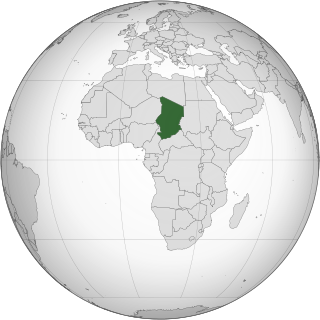
Lesbian, gay, bisexual, and transgender (LGBT) people in Chad face legal challenges not experienced by non-LGBT residents. Both male and female forms of same-sex sexual activity are illegal in the country. Before the new penal code took effect in August 2017, homosexual activity between adults had never been criminalised. There is no legal protection against discrimination based on sexual orientation and gender identity.

Lesbian, gay, bisexual, and transgender (LGBT) people in the Central African Republic face legal and social challenges not experienced by non-LGBT residents. Both male and female types of same-sex sexual activity are legal in the Central African Republic, but LGBT persons still face discrimination among the broader population.
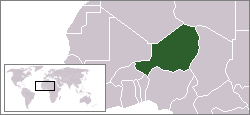
Lesbian, gay, bisexual, and transgender (LGBT) people in Niger face legal challenges not experienced by non-LGBT residents. Although same-sex sexual activity is legal, the Nigerien LGBT community faces stigmatization among the broader population.
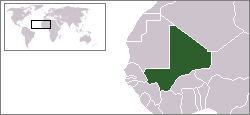
Lesbian, gay, bisexual, and transgender (LGBT) people in Mali face legal and societal challenges not experienced by non-LGBT residents. Although same-sex sexual activity is not illegal in Mali, LGBT people face widespread discrimination among the broader population. According to the 2007 Pew Global Attitudes Project, 98 percent of Malian adults believed that homosexuality is considered something society should not accept, which was the highest rate of non-acceptance in the 45 countries surveyed.

Lesbian, gay, bisexual, and transgender (LGBT) people in Gabon face legal challenges not experienced by non-LGBT residents. Except for a period between July 2019 and June 2020, same-sex sexual activity has generally been legal in Gabon.

Lesbian, gay, bisexual, and transgender (LGBT) people in Luxembourg have the same legal rights as non-LGBT people. Partnerships, which grant many of the benefits of marriage, have been recognised since 2004. In June 2014, the Luxembourgish Parliament passed a law enabling same-sex marriage and adoption rights, which took effect on 1 January 2015. Additionally, discrimination on the basis of sexual orientation and "change of sex" in employment, healthcare and the provision of goods and services is outlawed, and transgender people are allowed to change their legal gender on the basis of self-determination.

Lesbian, gay, bisexual, and transgender (LGBT) people in Benin face legal challenges not experienced by non-LGBT residents. Although same-sex sexual acts for both men and women are legal in Benin, homosexuals continue to face widespread persecution and are rarely open about their sexuality. They are also considered by many as deviants to the society, and homosexuality is often called a disease brought by white people to the country. LGBT persons additionally face stigmatization among the broader population.

Lesbian, gay, bisexual, and transgender (LGBT) people in Burundi face legal challenges not experienced by non-LGBT citizens. While never criminalized before 2009, Burundi has since criminalized same-sex sexual activity by both men and women with a penalty up to two years in prison and a fine. LGBT persons are regularly prosecuted and persecuted by the government and additionally face stigmatisation among the broader population.
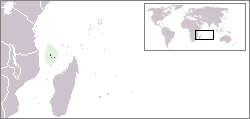
Lesbian, gay, bisexual, and transgender (LGBT) people in Comoros face legal challenges not experienced by non-LGBT residents. LGBT persons are regularly prosecuted by the government and additionally face stigmatization among the broader population.

Lesbian, gay, bisexual, and transgender (LGBT) people in Honduras face legal challenges not experienced by non-LGBT residents. Both male and female types of same-sex sexual activity are legal in Honduras.

Lesbian, gay, bisexual, and transgender (LGBT) people in Guinea face legal challenges not experienced by non-LGBT residents. Both male and female expressions of same-sex sexual activity are illegal in Guinea, and discriminatory attitudes towards LGBT people are generally tolerated in the nation.

Lesbian, gay, bisexual, and transgender (LGBT) people in Madagascar face discrimination and legal challenges not experienced by non-LGBT residents. While same-sex sexual activity is legal among individuals above the age of 21, most civic liberties such as the rights to get married and adopt children are not afforded to LGBT individuals.
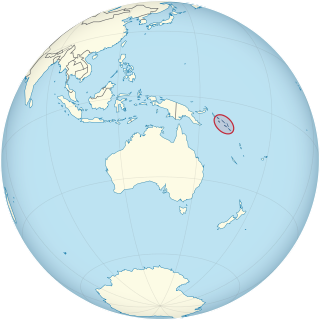
Lesbian, gay, bisexual, and transgender (LGBT) people in Solomon Islands face legal challenges not experienced by non-LGBT residents. Male same-sex sexual activity is illegal, punishable by up to 14 years imprisonment, but the law is not enforced.
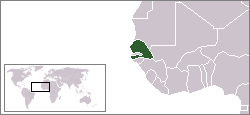
Lesbian, gay, bisexual, and transgender (LGBT) people in Senegal experience legal persecution. Senegal specifically outlaws same-sex sexual acts and, in the past, has prosecuted men accused of homosexuality. Members of the LGBT community face routine discrimination in Senegalese society.

Lesbian, gay, bisexual, and transgender (LGBT) people in the Ivory Coast face legal challenges not experienced by non-LGBT residents. Both male and female types of same-sex sexual activity are legal in Ivory Coast, but same-sex couples and households headed by same-sex couples are not eligible for the same legal protections available to opposite-sex couples.

Lesbian, gay, bisexual, and transgender (LGBT) people in São Tomé and Príncipe face legal challenges not experienced by non-LGBT residents. Both male and female forms of same-sex sexual activity are legal in São Tomé and Príncipe, however LGBT persons face stigmatization among the broader population.

Lesbian, gay, bisexual, and transgender (LGBT) people in Seychelles face legal challenges not experienced by non-LGBT residents. Same-sex sexual activity has been legal since 2016, and employment discrimination on the basis of sexual orientation is banned in Seychelles, making it one of the few African countries to have such protections for LGBT people. However, LGBT people may nonetheless face stigmatization among the broader population.
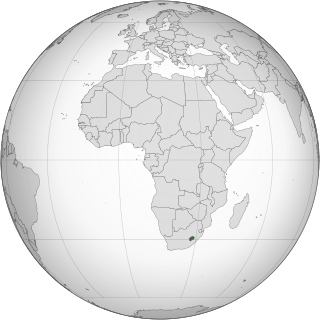
Lesbian, gay, bisexual, and transgender (LGBT) people in Lesotho face legal challenges not experienced by non-LGBT residents. Lesotho does not recognise same-sex marriages or civil unions, nor does it ban discrimination on the basis of sexual orientation or gender identity.
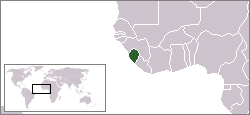
Lesbian, gay, bisexual, and transgender (LGBT) people in Sierra Leone face legal challenges not experienced by non-LGBT residents. Male same-sex sexual activity is illegal in Sierra Leone and carries a possible penalty of life imprisonment, although this law is seldom enforced.

The following outline offers an overview and guide to LGBT topics.





















